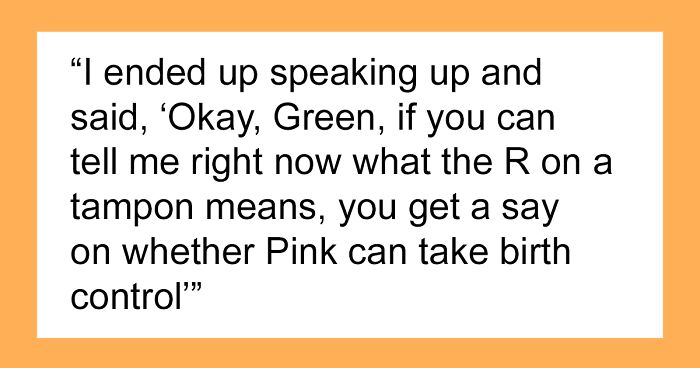
Guy Starts Mansplaining Periods To His Little Sister During Family Dinner, His Fiancée Asks Him A Question That Shuts Him Down
Reddit user u/BlueVariety was having dinner with her fiancé, his mom, and his little sister. Everything seemed fine, but the conversation took an unexpected turn.
The guy started “mansplaining” periods and birth control even though he obviously didn’t fully understand what he was talking about and put the entire table in an awkward situation.
u/BlueVariety couldn’t sit still and confronted him, but after everything was said and done, she started having doubts about how she handled the situation, so she turned to the subreddit ‘Am I the [Jerk]?’ to ask what they thought about the whole ordeal.
This family was having a nice dinner at a restaurant, but the guy started teaching his sister about menstruation
Image credits: Andrea Piacquadio (not the actual photo)
And he clearly didn’t know what he was talking about
Image credits: seventyfourimages (not the actual photo)
Image credits: Karolina Grabowska (not the actual photo)
Image credits: Timur Weber (not the actual photo)
Image credits: BlueVariety
According to Merriam-Webster, mansplaining is the act of explaining something to a woman in a condescending way that assumes she has no knowledge about the topic.
Image credits: cottonbro studio (not the actual photo)
Author Kim Goodwin thinks that the “-splaining” part comes down to three factors:
- Does the person want an explanation? Unsolicited explanations may be fine (within reason) if you’re, for example, someone’s teacher or manager, but explaining after they’ve declined your help is almost always disrespectful, and a normal conversation is a good place to start building the habit of consent.
- Are you making bad assumptions about competence? Explaining things to knowledgeable people isn’t just a waste of time. Regardless of your intentions, you may undermine them by implying you don’t trust their competence or intelligence. Plus, you run the risk of undermining yourself by looking like you have an inflated opinion of your own knowledge.
- How does bias affect your interpretation of the above? We are taught gender bias in behavior and communication from an early age, with boys and girls often being criticized and praised for different behaviors in school. We like to think we treat people fairly, but men often assume women are less competent, and white people are likely to assume darker skin equals lower intelligence.
When it comes to women’s bodies, men generally aren’t the best experts on the subject
Image credits: Andrea Piacquadio (not the actual photo)
A 2019 YouGov survey reveals a widespread lack of anatomical knowledge about female genitalia.
Respondents were shown a diagram of that part of the body and were asked to label it to the best of their abilities. The researchers accepted misspelled but obviously correct answers, and even euphemistic or descriptive responses when appropriate (e.g. ‘wee hole’ for urethra or ‘lips’ for labia).
Even so, half of the people surveyed could not identify or describe the function of the urethra (58%), labia (47%), or vagina (52%).
The men did worse, but breaking those results down by gender, we see that women could refresh their knowledge too. While six in ten men (59%) could not even label the vagina, about half of women (45%) weren’t able to do it either. Slightly more didn’t know what the urethra was (61% of men and 55% of women), and around half of both genders failed to label the labia (52% of men and 43% of women).
YouGov also asked a more practical question: whether it’s necessary to take out a tampon to urinate.
Respondents had to choose which statement they thought was true in regards to whether a tampon: “used to soak up blood during a period” and “interferes with urination.”
Six in ten men (57%) and eight in ten women (82%) correctly identified that a tampon does not interfere with how someone urinates (because the blood comes from a different hole), but a total of one in five women (18%) agreed with statements saying the tampon would need to be replaced, though none of the given statements were true, or said they did not know. This total rises to 43% of men.
So it sounds like a lot of us should open up a biology book before giving any lectures.
After the story went viral, the original poster (OP) answered a few questions
And people shared their take on the situation
Some even had similar stories of their own
Seems like an all around okay guy - he has a strong enough relationship with his sister to talk about periods. Sounds like he is a bit immature and is capable of growing. Could use resources, besides his girlfriend, to help him mature.
Yeah, having trouble reading a room and over explaining things is something that i *still* struggle with, as a middle aged adult. Is it annoying? Probably. But it doesn’t mean the person is a lost cause.
Load More Replies...The worst of this was reading far enough to see her defending the guy with "Oh but he used to be worse'".
Look, nobody is perfect. I'm not, and I'd venture a guess that you're not either. The most we can ask from people is that they try to work on the things they can....and he's doing that. It's too easy to make black and white character judgments on the internet.
Load More Replies...Seems like an all around okay guy - he has a strong enough relationship with his sister to talk about periods. Sounds like he is a bit immature and is capable of growing. Could use resources, besides his girlfriend, to help him mature.
Yeah, having trouble reading a room and over explaining things is something that i *still* struggle with, as a middle aged adult. Is it annoying? Probably. But it doesn’t mean the person is a lost cause.
Load More Replies...The worst of this was reading far enough to see her defending the guy with "Oh but he used to be worse'".
Look, nobody is perfect. I'm not, and I'd venture a guess that you're not either. The most we can ask from people is that they try to work on the things they can....and he's doing that. It's too easy to make black and white character judgments on the internet.
Load More Replies...
 Dark Mode
Dark Mode 

 No fees, cancel anytime
No fees, cancel anytime 



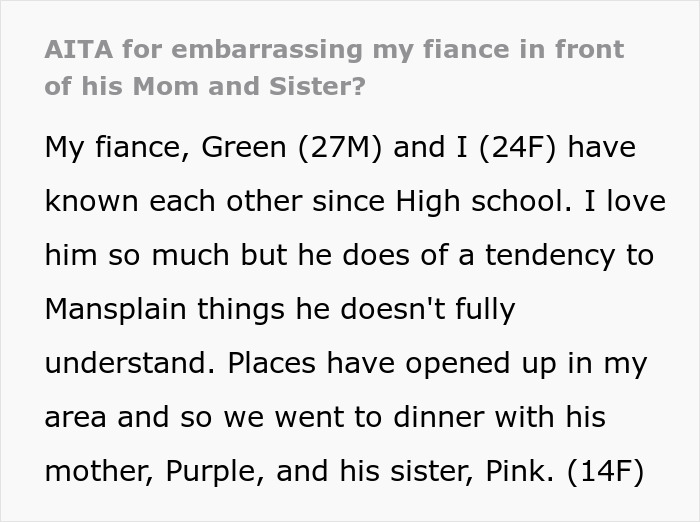
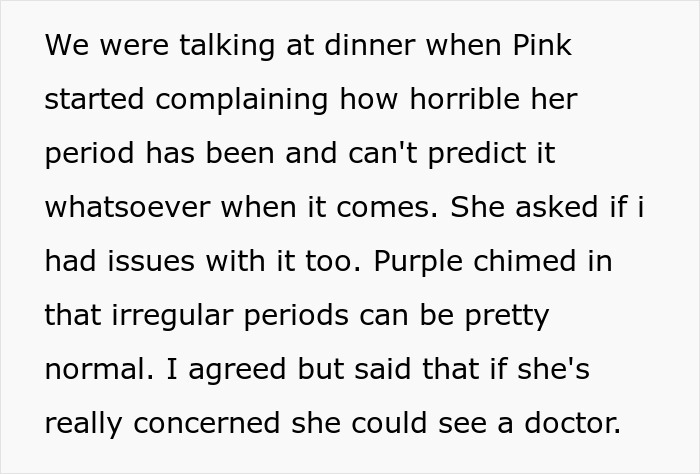


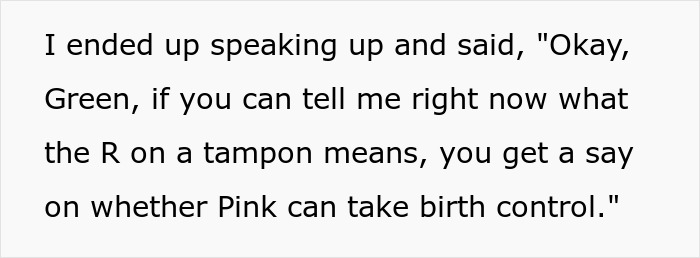

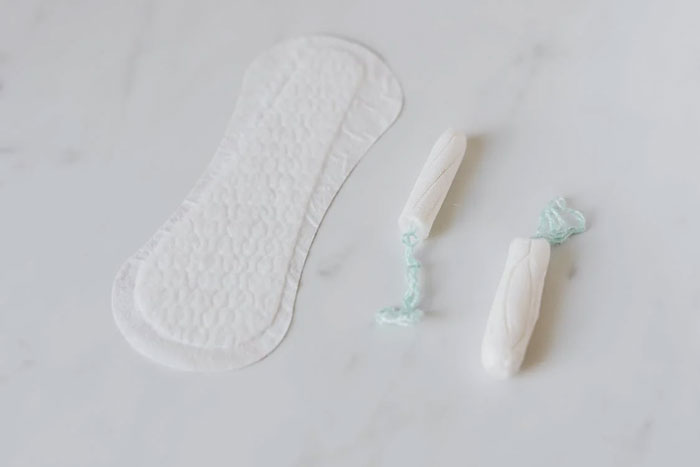
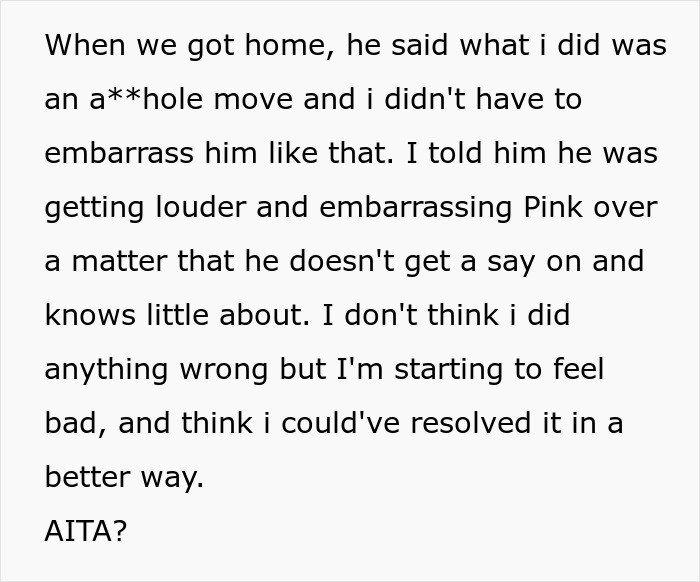


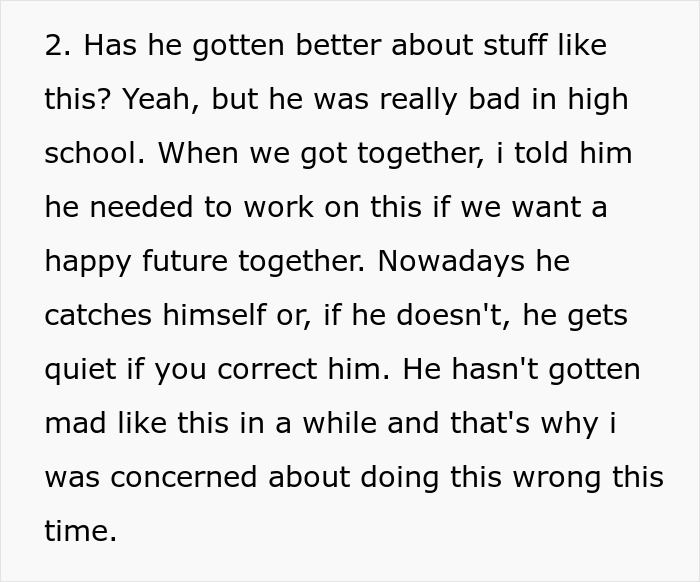
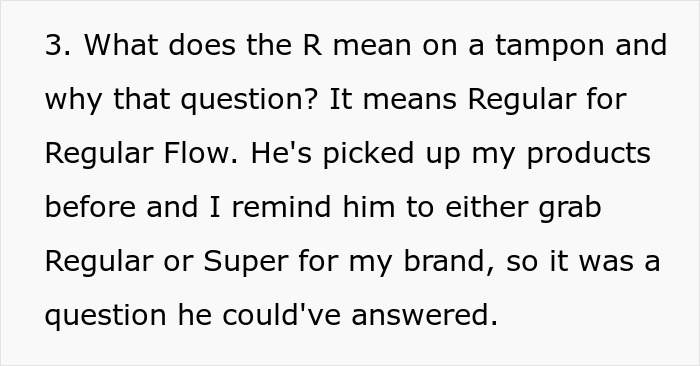
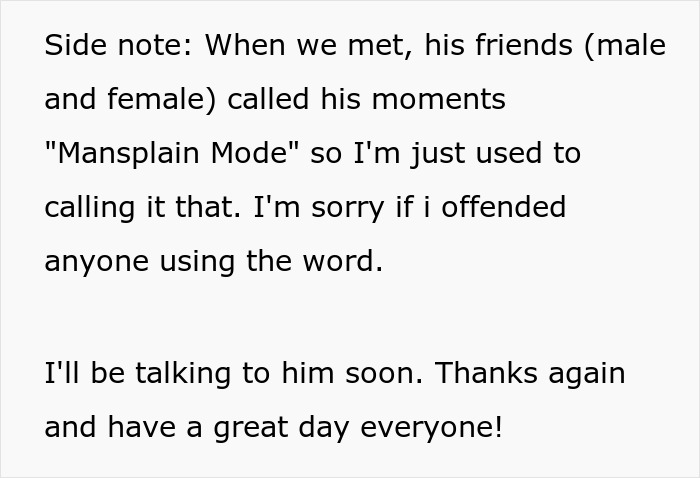




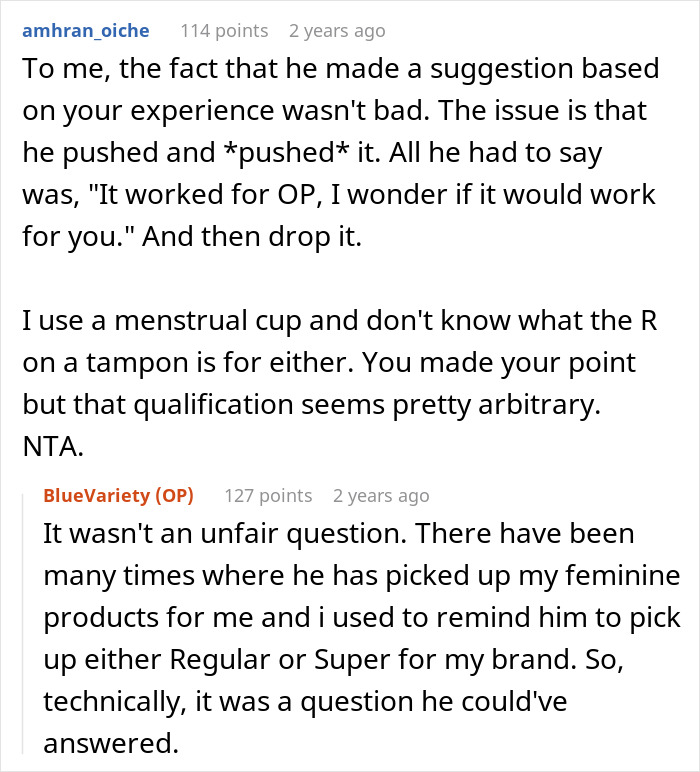
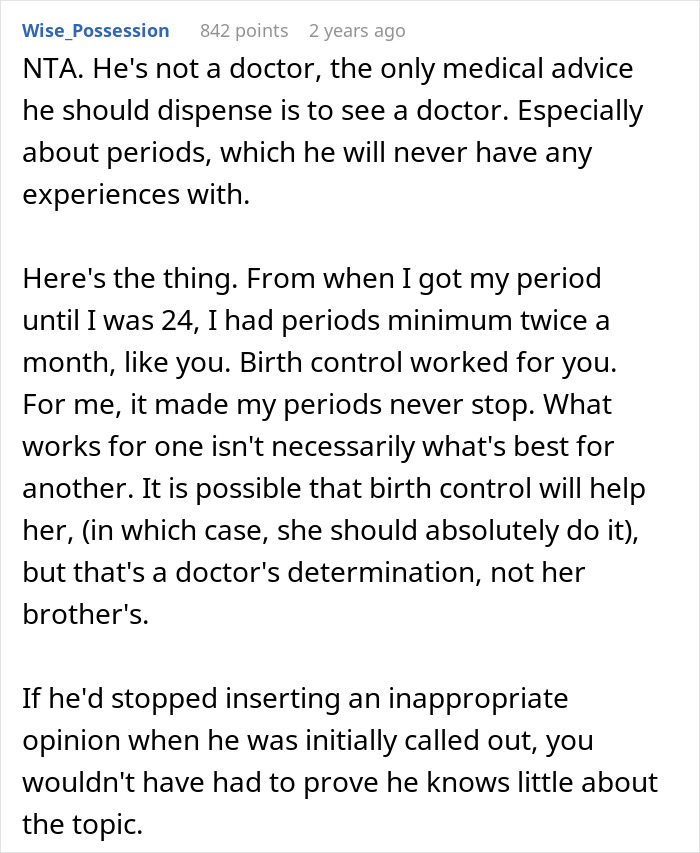
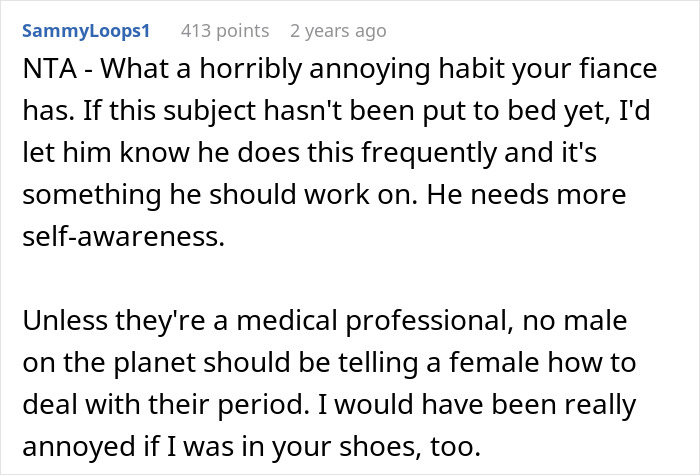




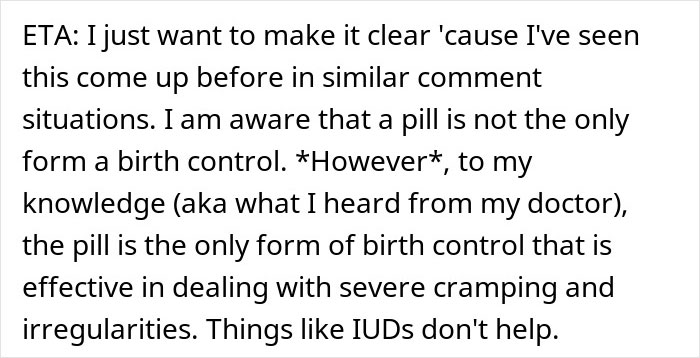


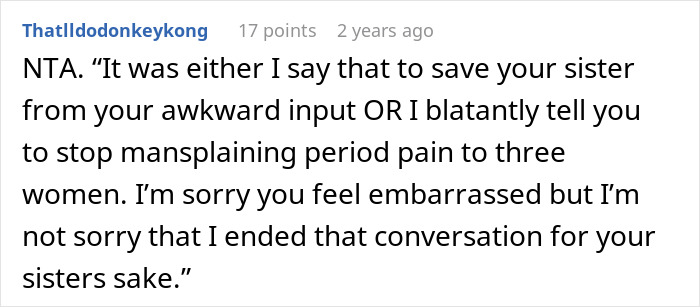
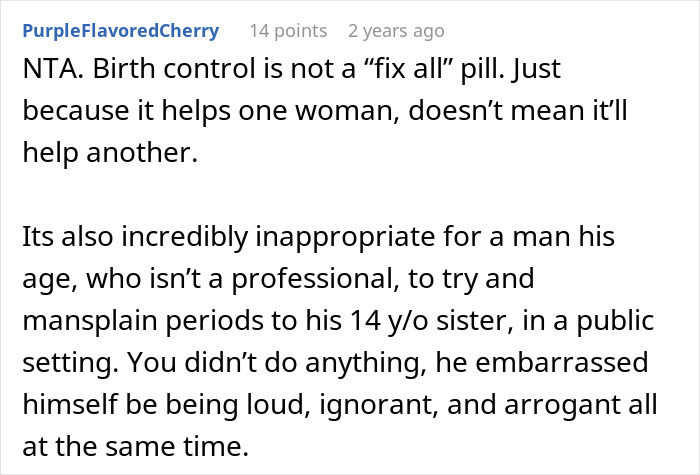
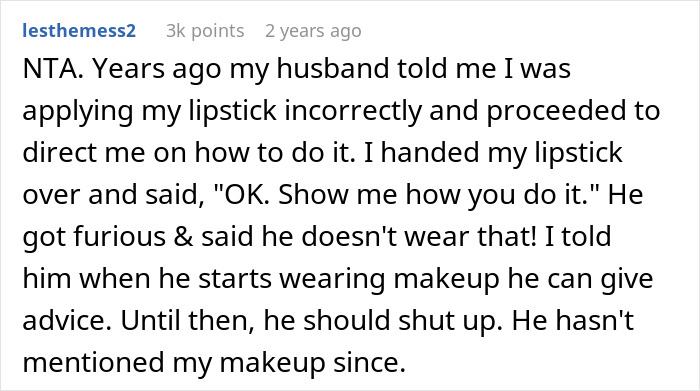











































91
20